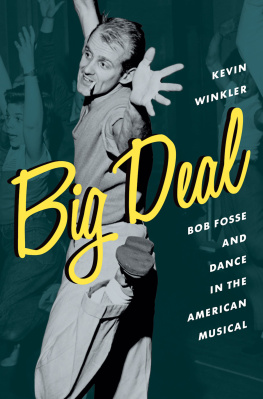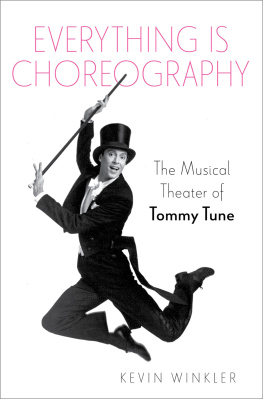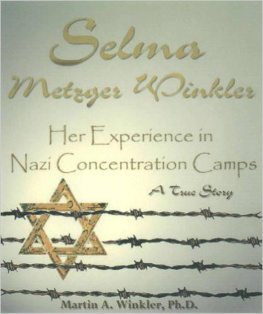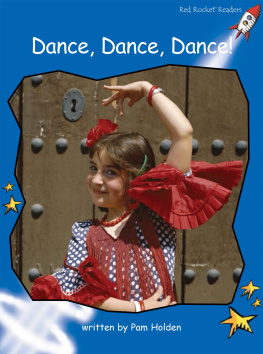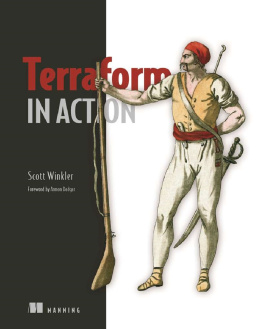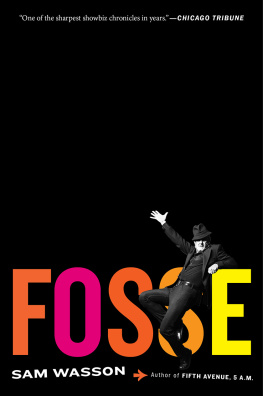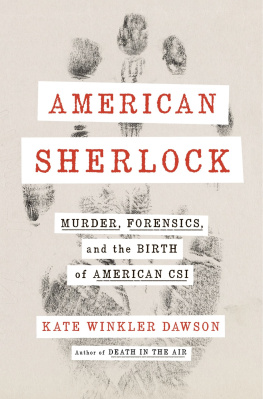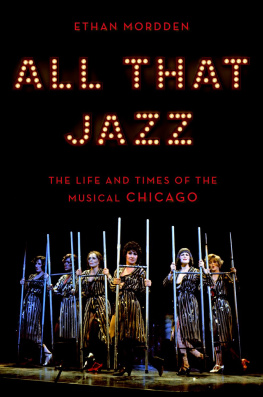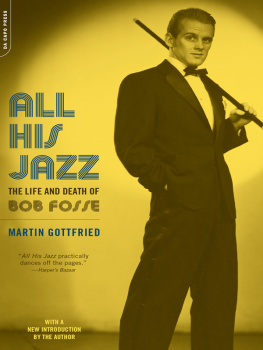BIG DEAL

Geoffrey Block, Series Editor
Series Board
Tim Carter
Kim Kowalke
Dominic McHugh
Jeffrey Magee
Carol J. Oja
Larry Starr
Stephen Banfield, Emeritus
South Pacific: Paradise Rewritten
Jim Lovensheimer
Pick Yourself Up: Dorothy Fields and the American Musical
Charlotte Greenspan
To Broadway, to Life! The Musical Theater of Bock and Harnick
Philip Lambert
Irving Berlins American Musical Theater
Jeffrey Magee
Loverly: The Life and Times of My Fair Lady
Dominic McHugh
Show Boat: Performing Race in an American Musical
Todd Decker
Bernstein Meets Broadway: Collaborative Art in a Time of War
Carol J. Oja
Well Have Manhattan: The Early Work of Rodgers and Hart
Dominic Symonds
Agnes de Mille: Telling Stories in Broadway Dance
Kara Gardner
The Shuberts and their Passing Shows: The Untold Tale of Ziegfelds Rivals
Jonas Westover
Big Deal: Bob Fosse and Dance in the American Musical
Kevin Winkler

Oxford University Press is a department of the University of Oxford. It furthers the Universitys objective of excellence in research, scholarship, and education by publishing worldwide. Oxford is a registered trade mark of Oxford University Press in the UK and certain other countries.
Published in the United States of America by Oxford University Press
198 Madison Avenue, New York, NY 10016, United States of America.
Oxford University Press 2018
All rights reserved. No part of this publication may be reproduced, stored in a retrieval system, or transmitted, in any form or by any means, without the prior permission in writing of Oxford University Press, or as expressly permitted by law, by license, or under terms agreed with the appropriate reproduction rights organization. Inquiries concerning reproduction outside the scope of the above should be sent to the Rights Department, Oxford University Press, at the address above.
You must not circulate this work in any other form and you must impose this same condition on any acquirer.
Library of Congress Cataloging-in-Publication Data
Names: Winkler, Kevin, author.
Title: Big deal : Bob Fosse and dance in the American musical / Kevin Winkler.
Description: New York, NY : Oxford University Press, [2018] |
Series: The broadway legacies series | Includes bibliographical references and index.
Identifiers: LCCN 2017026450 (print) | LCCN 2017045894 (ebook) |
ISBN 9780199336807 (updf) | ISBN 9780199336814 (epub) | ISBN 9780199336791 (alk. paper)
Subjects: LCSH: Fosse, Bob, 19271987. | ChoreographersUnited StatesBiography. |
MusicalsUnited States.
Classification: LCC GV1785.F67 (ebook) |
LCC GV1785.F67 W56 2018 (print) | DDC 792.8092 [B]dc23
LC record available at https://lccn.loc.gov/2017026450
Una ms, Bob Fosses rehearsal mantra, was shorthand for do it one more time until it was perfect, no matter how late it was or how exhausted you were. This book is dedicated to every dancer who has ever lined up to compete for a job, sweated through rehearsals and performances, and then did it una ms.
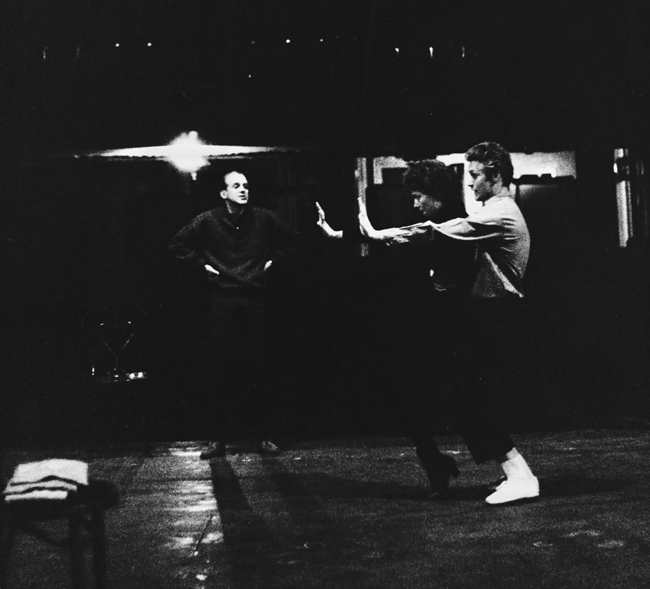
Bob Fosse rehearses Gwen Verdon and William Guske on stage in Chicago during the post-Broadway national tour of Redhead in 1960. Library of Congress, Performing Arts Reading Room.
CONTENTS


will inevitably discover that Fosse (19271987), whose career as a dancer began in the later 1940s, was a huge deal. For starters, viewers in a variety of formats can savor footage of a young dancing Fosse already exhibiting his instantly recognizable dance moves in From This Moment On, a number in the film version of Kiss Me, Kate (1953), or the priceless pas de deux Whos Got the Pain with his dancing (and soon-to-be marriage) partner Gwen Verdon in the film adaptation of Damn Yankees (1957).
While still in his twenties, Fosse made his initial mark as a Broadway choreographer in The Pajama Game (1954), Damn Yankees (1955), New Girl in Town (1957), How to Succeed in Business without Really Trying (1961), and Little Me (1962). Beginning with Redhead in 1959 and for much of the 1960s and 1970s, Fosse dominated the postJerome Robbins generation of Broadway director-choreographers with Sweet Charity (1966), Pippin (1972), Chicago (1975), and Dancin (1978), in addition to an acclaimed film version of Cabaret (1972), all of which amply display Fosses angular, dramatic, often provocative and highly idiosyncratic and seminally influential choreographic style.
In 1973, the same year Secretariat became the first thoroughbred in twenty-five years to win the coveted triple crown in horseracing, Fosse became the first (and to date only) person to win a previously unimaginable triple crown for his work on stage, television, and film: a Tony Award for Pippin, an Emmy for Liza with a Z (both for direction and choreography), and a Best Director Oscar for Cabaret. As Winkler informs us in his introduction, the latter recognition gave Fosse further distinction as the only star director of musicals of his eraa group that included Jerome Robbins, Gower Champion, Michael Kidd, and Harold Princeto equal his Broadway success in films.
Shortly after his death in 1987, works first directed by Fosse and now revived in the style of Bob Fosse have remained at the center of the popular entertainment universe. Chicago, which was overwhelmed by A Chorus Line when both shows appeared on Broadway in 1975, came roaring back in 1996 when its Best Revival not only far surpassed its former run but eventually became the longest-running musical to originate in America and the second-longest running Broadway musical ever, behind only The Phantom of the Opera. Additional milestones include the musical revue Fosse based on Fosses choreography, which received the Tony Award for Best Musical in 1999, the 2002 film adaptation of Chicagothe first film musical to win the Oscar for Best Musical since 1968and a stage revival of Pippin that received the Tony for Best Revival in 2013.
Before completing more than twenty years of service as a curator, archivist, and director for several divisions at the New York Public Library for the Performing Arts, the author of Big Deal was a professional dancer who, as a member of a dancing chorus, experienced the life-altering opportunity of being coached by Fosse during a week of rehearsals in preparation for the 1982 revival of Little Me. As one of those lucky enough to claim the title of Fosse dancer, Winkler, the future author of the first comprehensive scholarly study of Fosses stage, film, and television work, recalled that the experience of working with him left a tremendous impression mainly because he brought a directors eye to staging dance and demanded the same dramatic intent from the dancers as from the actors.

